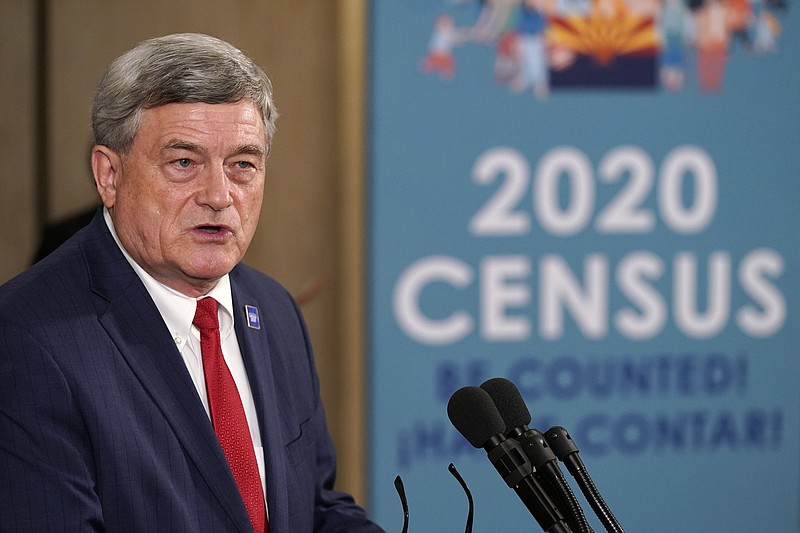ORLANDO, Fla. (AP) - With the number of U.S. households counted topping 95 percent, there is no reason for a judge to order the U.S. Census Bureau to extend by a month the head count of every U.S. resident, government attorneys said in court papers Tuesday.
"Plaintiffs' claims of harm in this matter are rapidly evaporating," the government attorneys said ahead of a virtual court hearing in San Jose, California, over whether the 2020 census should stop Sept. 30 or continue through Oct. 31.
A coalition of cities, counties and civil rights groups is suing the Census Bureau and the Department of Commerce in an effort to extend the 2020 census for another month. They said in court papers Tuesday the decision to shorten the schedule was forced on the bureau. Bureau officials knew the shortened scheduled would risk accuracy in the count and "was impossible to do right."
In an internal email sent to other top Census Bureau officials in late July, Tim Olson, associate director for field operations, said the bureau was having trouble deploying census takers because "people are afraid to work for us."
"And this means it is ludicrous to think we can complete 100 percent of the nation's data collection earlier than 10/31 " Olson said in the email that was released into the court record Tuesday.
Anyone who thinks the Census Bureau can turn in numbers used for figuring out how many congressional seats each state gets by the end of the year "has either a mental deficiency or a political motivation," Olson said.
During Tuesday's court hearing, Melissa Sherry, an attorney for the coalition, called Olson's email about the inability to finish before the end of October as a statement that "is as stark as it can possibly be."
The judge in the San Jose case earlier this month issued a temporary restraining order prohibiting the Census Bureau from winding down 2020 census operations until she could issue a ruling. Plaintiffs in the San Jose case allege the decision to shorten the schedule was made to accommodate a directive from President Donald Trump. The order tried to exclude people in the country illegally from being included in the numbers used for deciding how many congressional seats each state gets in a process known as apportionment.
"There is a complete lineup in timing between the presidential memo and the decision to cut short the census," Sherry said.
Blaming the presidential memorandum for the shortened census schedule was "improper," government attorney Alexander Sverdlov said.
A three-judge panel in New York blocked Trump's directive earlier this month, saying it was unlawful. The Trump administration on Tuesday asked the Supreme Court for fast action on its appeal.
The census helps determine how $1.5 trillion in federal spending is distributed annually and how many congressional seats each state gets.
In their court papers Tuesday, the government attorneys, supported by a declaration from a Census Bureau associate director, said the census operations were being harmed by the temporary restraining order. The order prevented operations from winding down in areas almost completely counted so the most successful census takers can focus on the hardest cases, they said.
The government attorneys said they were inclined to appeal the temporary restraining order today, and if that appeal isn't allowed by the judge, the Census Bureau would be forced to take steps toward winding down operations which they had halted because of the order.

